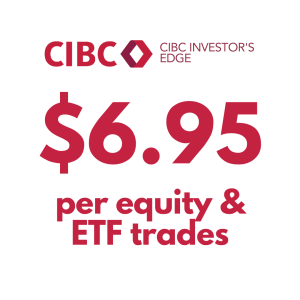
As the popularity of cryptocurrencies continues to rise in Canada, so does the need for efficient reporting of tax on crypto. Using the best crypto tax software in Canada can be a valuable tool in helping individuals and businesses. Crypto tax software helps you keep track of your crypto transactions, plus any gains or losses. Also, you can calculate your tax liability and generate accurate tax reports.
With so many options available, choosing the best crypto tax software in Canada can be a daunting task. Pricing and the ability to handle multiple types of cryptocurrencies can all play a role in the decision-making process. In this article, you will discover the best crypto tax software available in Canada. By the end of this article, you can make an informed decision about the best software to use for your needs.

Table of contents
- Crypto Taxation in Canada: A Brief Overview
- What is Crypto Tax Software?
- What is the best tax filing software for crypto?
- Is crypto capital gains in Canada?
- What tax form do I use for crypto in Canada?
- Can you write off crypto losses in Canada?
- How do I avoid crypto taxes?
- What is the penalty for not reporting cryptocurrency?
Crypto Taxation in Canada: A Brief Overview
Cryptocurrency is a relatively new technology. For this reason, it took a little while for the Canada Revenue Agency to devise and implement a tax policy for crypto. Currently, cryptocurrency is taxed as either business income or capital gains. They are mutually exclusive, meaning you’ll either pay income tax or capital gains tax on your crypto, but not both. Let’s take a quick look below:
- Business income. If your main source of income and primary job is trading and engaging with cryptocurrency, your income (or loss) would be considered business income. In this instance, you would be considered self employed and would fill out your tax return as such.
- Capital gains. If cryptocurrency is a passive investment or hobby of yours, any income (or loss) would be subject to capital gains tax.
CIBC Investor’s Line Offer
Up to $6.95 per online stock or ETF trade. Plus, there’s no minimum account balance.
What is Crypto Tax Software?
Crypto tax software is an automated program used for tracking and management of taxes on cryptocurrencies. Crypto tax software works similarly to conventional tax filing software. However, this tax-filing software has been designed exclusively for the crypto trading world. Furthermore, crypto tax software simplifies preparing your taxes according to your province or territory of residence.
What does crypto tax software do?
A robust, effective crypto tax software does the following:
- Calculates gains and losses associated with cryptocurrency transactions for tax purposes.
- Automatically captures transaction data for tax preparation and filing.
- Can identify charitable donations and non-taxable transactions. This includes transfers between wallets and exchanges, and purchasing and holding cryptocurrency.
How to do crypto taxes in Canada?
The first step is to determine what kind of tax you’ll have to pay, either business income tax or capital gains tax. From there, you’ll have to compute some numbers, such as what your overall profit (or loss) was or the sum of all capital gains (or losses) for the tax year. Usually this is done using crypto tax software, but you can also do it yourself in a platform like Excel or Google Sheets. Once you have those inputs, include it with your T1 personal tax return. You will either have to report it as self employment/business income or capital gains/loss income. Make sure you’re reporting your other income tax information too. When you’re comfortable with everything, simply submit it and pay any tax you owe!
What is the best tax filing software for crypto?
When it comes to filing crypto taxes in Canada, the Canada Revenue Agency (CRA) provides limited guidance. This is why many Canadian taxpayers turn to tax software and a crypto tax calculators to simplify the process. If you’re looking for the best Crypto tax software in Canada, consider the following options:
1. Koinly
Koinly is the best overall crypto tax software. It’s user-friendly with fast calculations and advanced transaction filtering. It can integrate with over 300 exchanges and wallets. It has a double-entry ledger system and allows data exporting to other tax software. Koinly has a free plan, but tax reports are not included in it.
CIBC Investor’s Line Offer
Up to $6.95 per online stock or ETF trade. Plus, there’s no minimum account balance.
2. CoinLedger
If you’re a frequent trader, CoinLedger may be the best option for you. It is a user-friendly crypto tax software that supports unlimited exchanges. CoinLedger offers real-time profit and loss reports. It also allows easy exportation of transaction data to other tax software, like Excel. This platform supports over 10,000 cryptocurrencies and provides tax loss harvesting tools. There’s 24/7 customer service via chat or email.
3. Coinpanda
Coinpanda is among the crypto tax software in Canada that integrates with a large number of exchanges. It excels for quick and accurate tax reporting. Coinpanda generates transactions and taxable gains reports in less than 20 minutes. The platform also complies with local tax laws and supports more than 65 countries. It supports importation from over 800 exchanges and wallets and has a Forever Free Plan for 25 transactions.
4. CryptoTaxCalculator
CryptoTaxCalculator software is best suited for NFT professionals, but meets the needs of other crypto professionals as well. It is supported by major US and international exchanges and over 600 wallets. It also offers region-specific formatting for Canada and supports up to 100,000 transactions with its Trader plan.
5. CoinTracking
If you’re looking for a free plan, you should consider CoinTracking. This platform is a popular crypto tax software that supports over 10,000 cryptocurrencies. It allows easy tracking of portfolios, importing transactions, and tax loss harvesting. It offers quick tax report generation as well.
6. TokenTax
TokenTax is a crypto tax software designed for advanced users and businesses. The software can automatically integrate with exchanges to gather your transaction data. TokenTax also features tax loss harvesting and the ability to calculate and file taxes, with the help of an accountant. If you need excellent customer support, TokenTax is a great option.
7. TurboTax
TurboTax is a popular and reliable choice for Canadian taxpayers. It provides step-by-step guidance for tax preparation. It also offers professional tax help for an additional cost, although it is pricier than some alternatives. TurboTax is widely recognized as one of the best services for taxes, including being the best crypto tax software in Canada.
CIBC Investor’s Line Offer
Up to $6.95 per online stock or ETF trade. Plus, there’s no minimum account balance.
Related Reading: Best Free Tax Software in Canada
How do I file crypto taxes on TurboTax Canada?
TurboTax, a popular tax platform, was not designed with cryptocurrency in mind. Therefore, it lacks the necessary functionality to simplify crypto tax reporting like some of the other options.
If you wish to file with Turbotax, you’ll need to first calculate your income with another crypto tax software. You can use any of the software mentioned earlier to do this. Or, you can attempt to do it yourself if the volume of transactions or portfolio size isn’t significant. Some of the listed software above also provides full-service crypto tax accounting solutions. When you’ve calculated your tax, you can then import your tax form into your TurboTax account.
Step-by-step guide to filing crypto tax with TurboTax
- Step 1: Gather all necessary documents and information. This includes your crypto transaction history and income earned from crypto mining or staking. Any losses or gains from the sale or exchange of crypto should be included as well.
- Step 2: Open your TurboTax account. Log in to your TurboTax account and select the option to start a new tax return.
- Step 3: Enter personal information. These include your name, address, Social Insurance Number, and any other relevant details.
- Step 4: Navigate to the cryptocurrency section within TurboTax. This can usually be found under the “Investment Income” or “Investment Expenses” category.
- Step 5: Select the option to add your cryptocurrency transactions and enter all relevant details. They include the date of the transaction and the amount of cryptocurrency bought or sold. And lastly, the price at the time of the transaction.
- Step 6: You must report your earned income from mining or staking cryptocurrency as income in the appropriate section.
- Step 7: If you sold or exchanged crypto for a profit or loss, report the capital gain or loss in the appropriate section. TurboTax will calculate the gain or loss based on the information you provide.
- Step 8: Before submitting your return, make sure to review all information to ensure accuracy and completeness. Be sure to include and review other information related to your taxes, such as employment income and tax credits.
- Step 9: Once you’ve completed step 8, you can submit your tax return electronically.
By following these steps, you should be able to successfully file your crypto earnings and pay tax using TurboTax. However, if you have any questions or concerns, it’s always a good idea to consult with a tax professional.
Is crypto capital gains in Canada?
In Canada, cryptocurrency is treated as property. In most instances, the sale of cryptocurrency results in capital gains (or loss). Buying and holding cryptocurrency does not require taxpayers to pay taxes. But selling it will cause capital gains taxes to arise.
In some instances, cryptocurrency income (or loss) may be considered business income, not capital gains. If you are a full time crypto trader, it’s likely that your earnings are considered business income. In addition, money earned from staking or mining cryptocurrency is usually considered business income.
Cryptocurrency is not considered legal tender in Canada at the time of writing. As a result, using it to purchase goods or services is regarded as a barter transaction with corresponding tax implications. Therefore, taxpayers will realize a capital gain or loss on the value of the cryptocurrency at the time of acquisition. This only applies to taxpayers who use cryptocurrency to acquire goods or services.
Related Reading: Retirement Planning Software Canada
What tax form do I use for crypto in Canada?
The tax form you should use for your crypto-related transactions in Canada will depend on the nature of your income. But generally, Canadians can use the T2125 Statement of Business or Professional Activities and/or the Schedule 3 Capital Gains (or Loss) forms to file their crypto taxes. In addition, you will need to fill out and submit a T1 personal tax return to accompany these schedules.
In the event of capital losses, you can report them alongside capital gains on Schedule 3. Or, carry them over to a previous or future tax year using Form T1A or line 25300 of your tax return, respectively. Keep in mind that capital losses can only be applied against capital gains, not other sources of income.
Canadian residents who hold cryptocurrency outside of the country must submit Form T1135 to the CRA with their T1. This only applies if the total cost of their specified foreign property exceeds $100,000.
Can you write off crypto losses in Canada?
Any losses related to crypto can be claimed on your tax return against capital gains income. However, losses cannot be applied against any other type of income, except for capital gains. If you have excess losses, you can carry them back 3 years or forward indefinitely and apply them against past or future gains.
Given the nature of cryptocurrencies, some have experienced substantial losses. In some cases, these losses arise from fraud and the individual’s cryptocurrency assets are considered lost or stolen. Traditionally, lost or stolen assets are not considered in taxation. For instance, if you lost $10 on the subway or someone lifted $10 from your wallet, it would not be considered a loss for tax purposes. Taxpayers should seek the advice of a tax professional if they wish to deduct losses related to lost or stolen crypto. Unfortunately, this aspect of crypto tax is too complex for this article!
How do I avoid crypto taxes?
If you hold cryptocurrency as an investment and it does not generate any income, you are not required to pay taxes until you sell it. If you want to minimize your tax liability, avoid selling crypto; buy and hold instead. This way, the sale may qualify for the lower long-term capital gains tax rates, resulting in significant tax savings.
If your crypto earnings are considered business income, it’s not as easy to avoid taxation. However, you can deduct business expenses incurred to earn business income. Deducting expenses can help you reduce your tax burden.
Keep in mind that evading taxes is illegal and may result in penalties or legal consequences. Avoiding taxes is legal, but tread with caution.
What is the penalty for not reporting cryptocurrency?
If you fail to report your cryptocurrency gains or income on your tax return, you may be subject to penalties and fines from the Canada Revenue Agency. In addition, you might face a CRA audit which is stressful and time consuming. Depending on the audit findings, the CRA may request you pay additional tax.
The exact amount you can expect to pay for not reporting cryptocurrency can vary greatly based on your circumstances. As a final word of wisdom, tax evasion always catches up with people. Cryptocurrency and the taxation of it is still new to Canada, but it will advance over time. You may think you’re getting away with something now, but the CRA can audit backwards for up to 4 years, and even further if they suspect fraud and criminal activity. Pay your taxes today so you don’t have to worry about what will happen tomorrow!
Read More: Best Cryptocurrency ETFs in Canada for 2023

